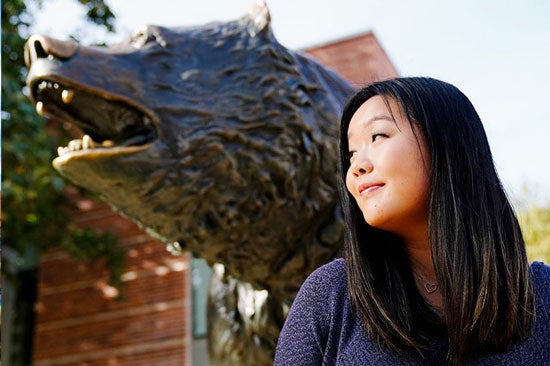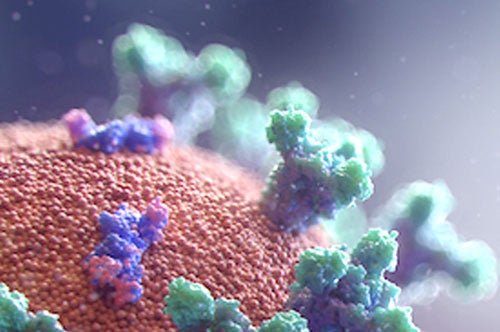Information for students
This page covers the following topics:
- Current COVID health requirements
- If you test positive for COVID
- Classes and instruction
- Housing and dining
- International students
- Compliance with COVID protocols
- UCLA Ashe Center services
- Well-being resources
COVID health checklist: What do I need to do?
For all current COVID-19–related health requirements and recommendations — including information on vaccines, isolation and quarantine, and testing resources — please see:
If you test positive for COVID
If you test positive on or off campus, you should contact the Exposure Management Team below. Likewise, if you are experiencing COVID-19 symptoms and have been in contact with an infected person, call the number.
For students
Exposure Management Team
310-206-6217
exposuremanagementteam@ashe.ucla.edu
Campus health officials will then will then provide you with an individualized assessment, including instructions on isolation and further testing, and will notify individuals identified as close contacts (as capacity allows).
Classes and instruction
Nearly all courses are currently taught in person, and there are no caps on the number of students allowed in a classroom beyond normal room capacities.
While in-person learning is the norm, instructors also strive to create course structures that are flexible enough to accommodate students’ COVID-19–related absences, including assessments that can easily be completed by students who missed class and which can be transferred to a remote environment if remote instruction becomes necessary.
If you have to miss class
Some students may have to miss class due to COVID-19 isolation and quarantine protocols. Instructors are committed to accommodating students who can’t be in class through video or audio streaming or recordings, makeup assignments and assessments, alternative projects, or other means. Students’ absences due to isolation or quarantine should not factor into any attendance component of their final grade.
If you are severely sick with COVID-19, you may qualify as temporarily disabled and receive support from the Center for Accessible Education following an interactive process with your instructor.
Accessibility for students with disabilities
UCLA is committed to ensuring that students with disabilities have an equal opportunity to participate in the rich academic experience UCLA offers. The UCLA Center for Accessible Education will work closely with students and instructors to determine appropriate accommodations and develop a plan tailored to the needs of students in each their courses.
The UCLA Office of Information Technology’s Disabilities and Computing Program also helps to ensure that faculty and students are aware of accessible best practices and that academic content is available and understandable to all.
Housing and dining
UCLA Housing
UCLA is offering primarily triple-capacity rooms in on-campus housing. All students living in university housing, whether on or off campus, will need to be compliant with the University of California’s current vaccination policy. For more information on UCLA’s COVID-19–related housing guidance, visit the UCLA Housing website and its COVID-19 information page.
If you need to isolate or quarantine
If you test positive for COVID-19 or are found to have been in close contact with an infected person — within 6 feet in an indoor setting for 15 minutes or more over a 24-hour period — you may need to spend time in isolation or quarantine. If you’re a student living in UCLA housing, UCLA will provide appropriate accommodations for isolation, and you should bring along enough personal belongings for 10 days. UCLA staff will monitor your health. Students and employees living in non-UCLA housing should remain in a private room with a private bathroom, if possible, and arrange for meals and other essential needs.
To understand more about the process, including potential early release from isolation, please see our isolation and quarantine protocol.
UCLA Dining
UCLA Housing has modified some of its service methodology and activities to support student health and safety. Currently our residential restaurants and dining facilities are only open to those living in the on-campus residential halls located on the Hill; the Bruin Meal Plan is not being offered.
Please see the dining website for the most up-to-date hours of operation and menus.
For more information on housing and dining, see:
International students
For detailed information about enrollment, F-1 and J-1 visa requirements, and international travel, please visit the UCLA Dashew Center for International Students.
Vaccinations
International students are encouraged to get vaccinated, including in their home countries. However, only vaccines that have been granted emergency use authorization by the World Health Organization meet the university’s current vaccine requirement. (The CDC keeps a list of WHO-authorized vaccines.)
International students who cannot obtain a vaccine that has been approved or granted emergency use authorization by the WHO are encouraged to plan ahead and schedule an appointment for a COVID vaccine upon arrival in the United States.
Compliance with campus COVID protocols
There may be times when students or others, after being reminded, continue to ignore campus health and safety protocols. Repeated student violations should be reported to the Office of Student Conduct at dean@saonet.ucla.edu or 310-825-3871. In addition, reports of violations may be made anonymously through UCLA’s whistleblower hotline at 800-403-4744. Reports of violations will generally be processed within one business day, and a determination will be made whether the violation was willful or not.
Students with willful violations, repeated violations or violations believed to have resulted in COVID-19 infections will face disciplinary measures up to and including exclusion from campus.
If faculty members or TAs demonstrate repeated noncompliance with health and safety protocols, a complaint can be made to the instructor’s department chair, divisional dean, academic personnel officer or the dean of students.
For full details of UCLA’s protocol on compliance and violations, see Compliance With Safety Measures (PDF)
UCLA Arthur Ashe Student Health & Wellness Center
The Ashe Center is open the following hours (and closed on weekends):
- Monday, Tuesday and Thursday: 8 a.m.–1 p.m., 2 p.m.–4:30 p.m.
- Wednesday: 8 a.m.–12:30 p.m., 2 p.m.–4:30 p.m.
- Friday: 9 a.m.–1 p.m., 2 p.m.–4:30 p.m.
If you are experiencing symptoms of COVID-19 or have been in contact with someone confirmed to have been infected, immediately call the Exposure Management Team at 310-206-6217.
More Ashe Center resources:
Well-being and counseling
Counseling and Psychological Services (CAPS) is open during regular business hours, providing all services through telehealth. In a crisis, 24/7 support is always available by phone at 310-825-0768.
Further resources are available on this site’s Emotional, Social and Physical Well-Being page.



